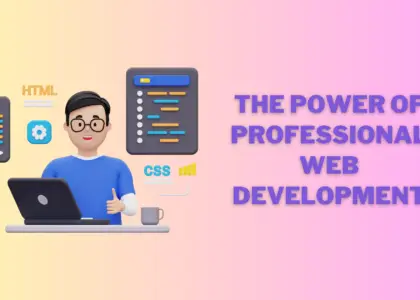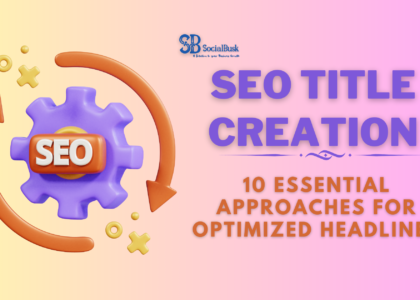Introduction
In today’s fast-paced digital age, traditional marketing strategies have taken a backseat, giving way to the dynamic world of digital marketing. Whether you’re a small business owner, a marketing enthusiast, or someone looking to boost their online presence, understanding what digital marketing is and how it works is crucial.
In this article, we’ll explore the fascinating realm of digital marketing in simple, easy-to-understand terms, covering its various components and providing insights into its functioning.
What is Digital Marketing?
Digital marketing refers to the use of digital channels and platforms to promote products, services, or brands to a specific target audience. Unlike traditional marketing, which relies on physical mediums such as billboards, newspapers, and television, digital marketing leverages the power of the Internet to connect with potential customers.
Components of Digital Marketing
Search Engine Optimization (SEO)
SEO is the process of optimizing your website’s content and structure to rank higher in search engine results pages (SERPs). This involves using relevant keywords, creating high-quality content, improving website speed, and ensuring mobile-friendliness. The goal is to increase organic (non-paid) traffic to your website.
Content Marketing
Content is king in the digital marketing world. Content marketing involves creating and distributing valuable, relevant, and consistent content to attract and engage your target audience. This can include blog posts, articles, videos, infographics, and more.
Social Media Marketing
Social media platforms like Facebook, Instagram, Twitter, and LinkedIn offer incredible opportunities for businesses to connect with their audience. Social media marketing involves creating and sharing content on these platforms, running paid advertising campaigns, and engaging with followers to build brand loyalty.
Email Marketing
Email marketing is a powerful tool for nurturing leads and maintaining customer relationships. It involves sending targeted emails to a list of subscribers and providing them with valuable information, promotions, and updates.
Pay-Per-Click (PPC) Advertising
PPC advertising allows businesses to place ads on search engines and social media platforms and pay only when a user clicks on the ad. This method provides instant visibility and can be highly targeted.
Affiliate Marketing
In affiliate marketing, businesses partner with affiliates (individuals or other businesses) who promote their products or services in exchange for a commission on sales generated through their referral links.
How Digital Marketing Works?
Digital marketing works by utilizing various online channels and tactics to achieve specific marketing goals. Here’s a simplified step-by-step breakdown of how it operates:
Setting Objectives: The first step is to define your marketing objectives. These could include increasing website traffic, generating leads, boosting sales, or enhancing brand awareness.
Identifying the Target Audience: To create effective digital marketing campaigns, you need to know your target audience. Who are they? What are their interests, behaviors, and pain points?
Choosing the Right Channels: Depending on your objectives and audience, select the most suitable digital marketing channels. For instance, if your audience is active on Instagram, focus on social media marketing.
Creating Compelling Content: Content is at the heart of digital marketing. Craft high-quality, relevant content that resonates with your audience. This could be blog posts, videos, social media updates, or email newsletters.
Optimizing for Search Engines: If you want to be found online, SEO is essential. Optimize your website and content to rank higher in search engine results.
Engaging on Social Media: Interact with your audience on social media platforms. Respond to comments, run contests, and share user-generated content to foster engagement.
Running Ads: Utilize paid advertising on platforms like Google Ads or Facebook Ads to reach a broader audience quickly.
Email Marketing Campaigns: Send targeted email campaigns to nurture leads and convert them into customers.
Analyzing and Adjusting: Monitor the performance of your digital marketing efforts using analytics tools. Adjust your strategies based on what’s working and what’s not.
Continuous Improvement: Digital marketing is an ever-evolving field. Stay updated with industry trends and adapt your strategies to remain competitive.
The Benefits of Digital Marketing?
Digital marketing offers numerous benefits for businesses of all sizes. Here are some key advantages:
- Increased Reach: With digital marketing, you can reach a global audience, breaking the barriers of geographical limitations.
- Targeted Advertising: Digital marketing allows you to target specific demographics, ensuring that your message reaches the right people.
- Cost-Effective: Compared to traditional marketing methods, digital marketing is often more cost-effective, making it suitable for businesses with smaller budgets.
- Measurable Results: Unlike traditional marketing, digital marketing provides real-time data and analytics, allowing you to measure the success of your campaigns and make data-driven decisions.
- Improved Conversion Rates: Through personalized and targeted marketing efforts, digital marketing can lead to higher conversion rates and better ROI.
Conclusion
Digital marketing is the driving force behind the online success of countless businesses today. By understanding its components and how it works, you can harness its potential to boost your brand’s visibility, engage with your audience, and achieve your marketing goals.
Are you ready to take your business to the next level through digital marketing? Don’t hesitate to book a call with experts or visit our website at socialbusk.com to explore how our team can help you navigate the exciting world of digital marketing and achieve outstanding results. Your online success awaits!





